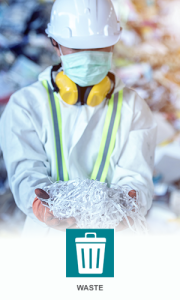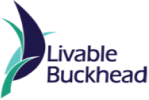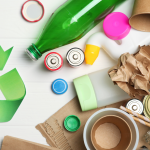Contaminate Free Paper Recycling
 Follow us on our series ‘Let’s Talk Recycling.’ Recycling is a large part of a sustainable future and something we can all take part in as a community. This is a continuation of ‘Spilling the Tea About Cross Contamination in Your Recyclables’.
Follow us on our series ‘Let’s Talk Recycling.’ Recycling is a large part of a sustainable future and something we can all take part in as a community. This is a continuation of ‘Spilling the Tea About Cross Contamination in Your Recyclables’.
Recycling paper can be confusing because there are so many paper products. Recycling your paper products extends the fiber supply and contributes to carbon sequestration, saves considerable landfill space, reduces energy and water consumption, and decreases the need for disposal. Georgia’s Paper Industry recycles almost 8 percent of all the paper consumed in the United States. The most important rule to remember when recycling paper is to ensure there is no contamination in the bins.
When placing your paper in bins to be recycled, make sure there is no food, beverage, or grease/oil on the items. Some of the typical paper items recyclable are cardboard boxes, brown paper, printer paper, glossy magazines, newspapers, envelopes, cereal boxes, paper grocery bags, books, and milk cartons (make sure they are rinsed and cleaned). The City of Atlanta Public Works Department has resources for pick up and drop off areas and times.
Live Thrive, a non-profit recycling center in Atlanta, accepts clean and dry paper products for recycling.
Some paper items are not recyclable and will contaminate the bin, always check with your local center for lists because city policies differ. Some of the typical paper items that are NOT recyclable are napkins, tissue paper, toilet paper, wax paper, paper towels, photos, sticky notes, and digital paper such as receipts.
Now, it is time for the grey areas of paper recycling. These items differ from city to city depending on the policies enacted and facilities equipment. Here are a few grey areas items you will need to contact your local recycling center to confirm.
- Pizza boxes: some facilities will take them while others cannot, due to the grease and cheese contamination.
- Paper cups such as to go coffee cups: many are lined with plastic requiring a facility to have a specific machine that separates the plastic from paper in cups.
- Shredded paper: the paper fibers become shorter in the shredding process and are less useful.
Contamination of different recyclables can seem overwhelming, but we are going to go through them together. Follow us for how to recycle plastic and avoid contamination.




